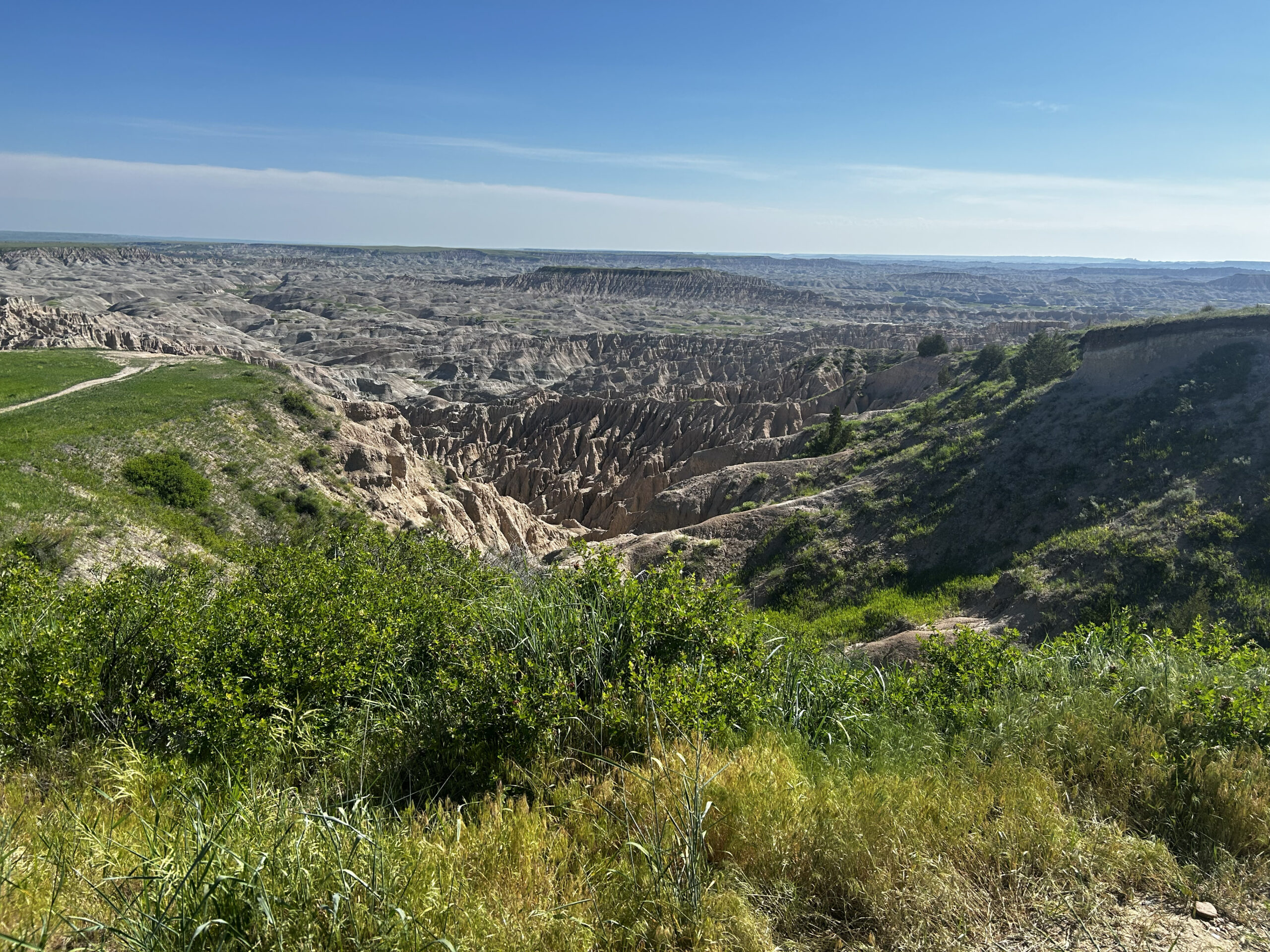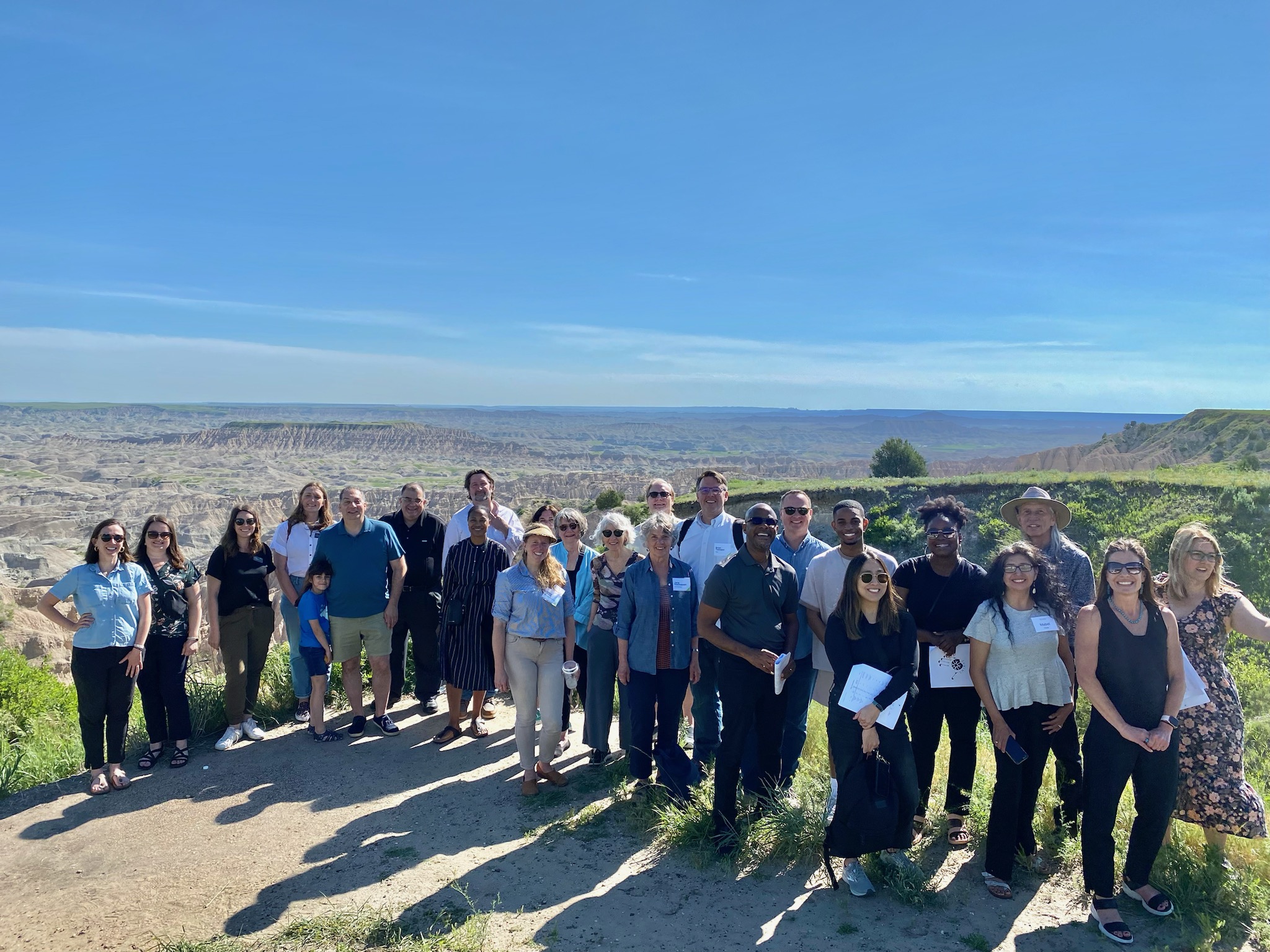The Arts Midwest Board of Directors convened in Rapid City, South Dakota in early June to conduct annual business and get to know a part of the region that has not been visited as often in the organization’s past.
“Is this your first time to South Dakota?” was a question posed to board members upon their arrival. For many, the answer was yes. And even for those who have been to the state, far fewer had been to western South Dakota.
The board made their home base in Rapid City, meeting with the local Rapid City Arts Council as well as the directors of South Dakota Arts Council and Arts South Dakota, all of whom provided background on the arts landscape around this vast state. They revealed deep partnerships and cooperation, both beneficial and necessary to supporting the arts in communities of all sizes across South Dakota. Fun fact: South Dakota has 37 local arts councils, which are vital to providing access to the arts in a state that is geographically spread out and more sparsely populated.
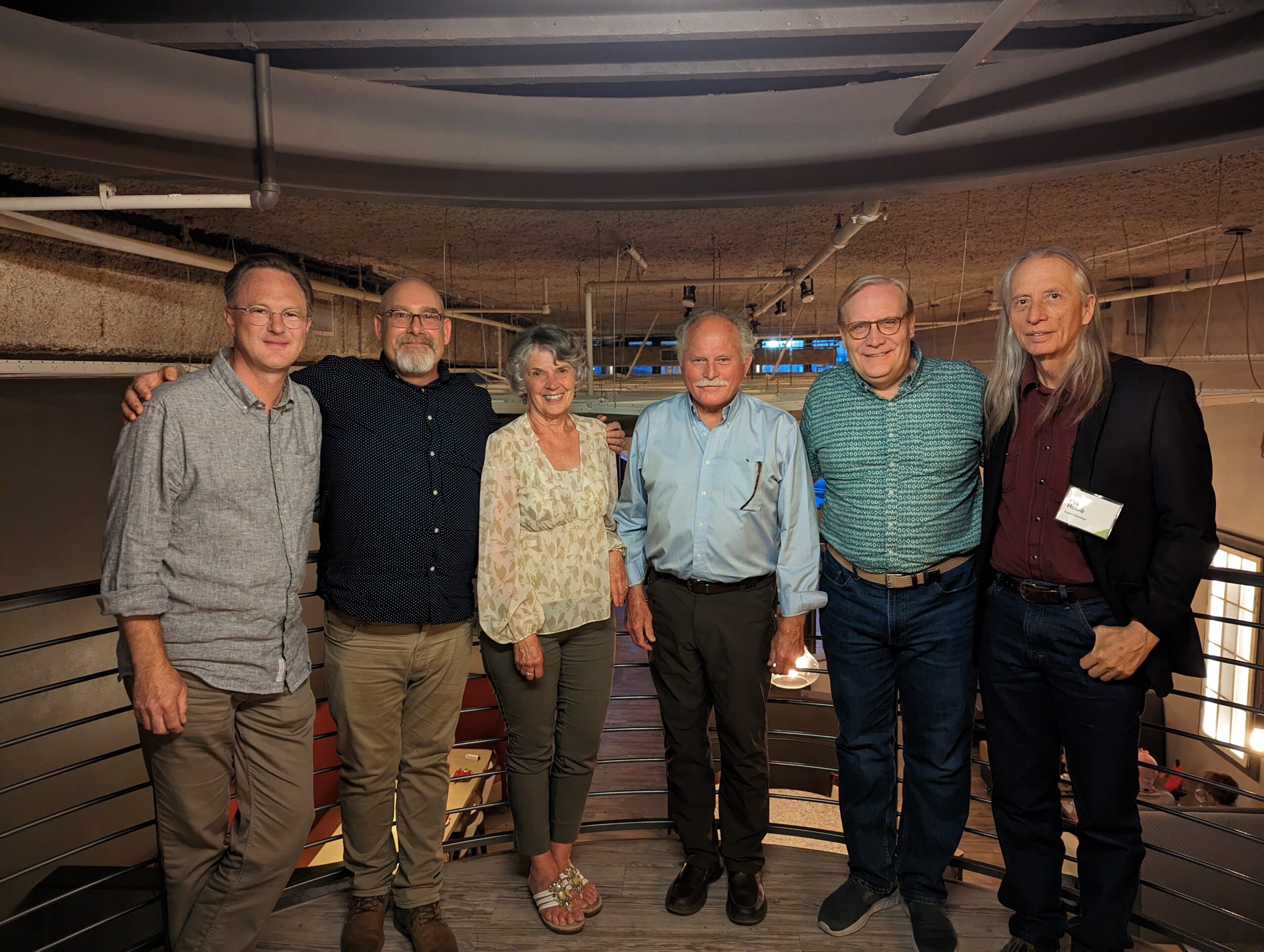
The board spent their second day engaged in an all-day bus seminar, driving in the Pine Ridge Reservation with a team from the Center for American Indian Research and Native Studies (CAIRNS), an Indian-controlled nonprofit research and education center. The seminar included stops at the Badlands National Park South Unit Visitor Center, Oglala Lakota Artspace, Red Cloud Indian School, and Wounded Knee.
While traveling, we heard from CAIRNS team members about historical events and current issues, engaging in conversations about successes, challenges, and complexity within the state and the reservation.
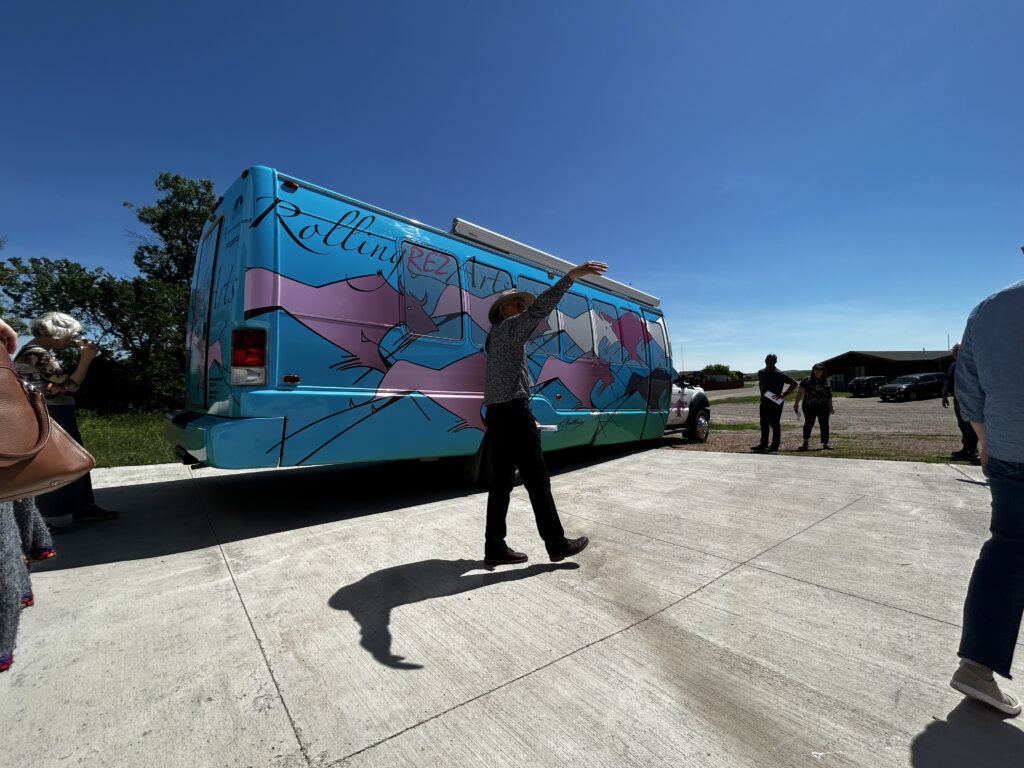
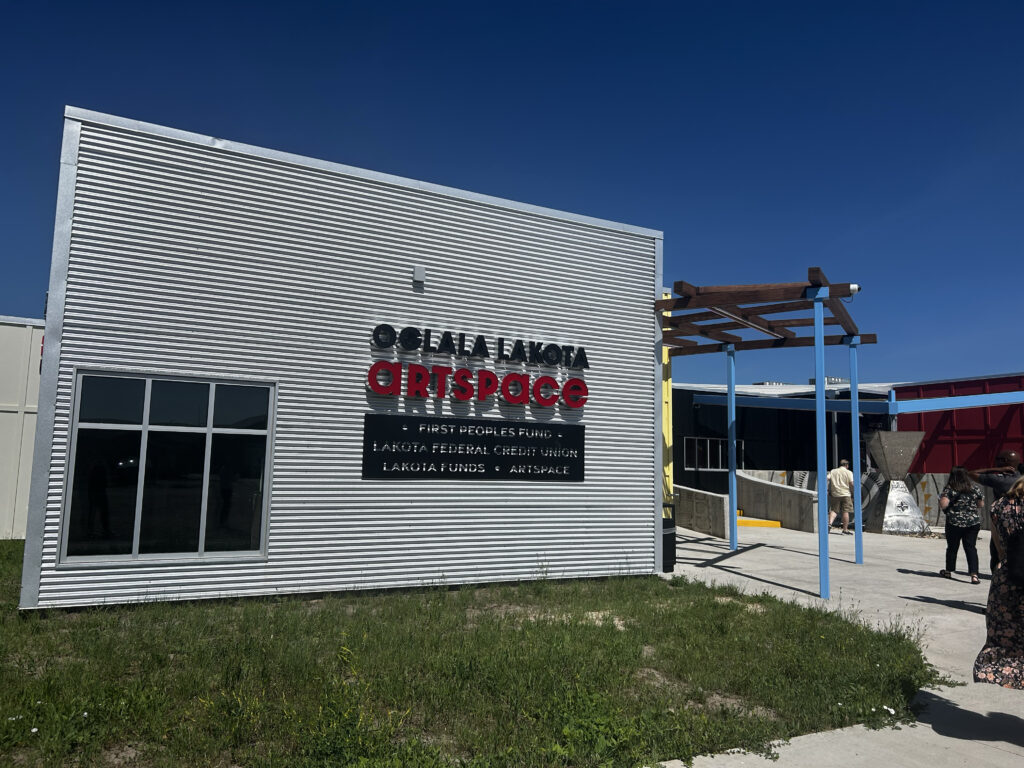
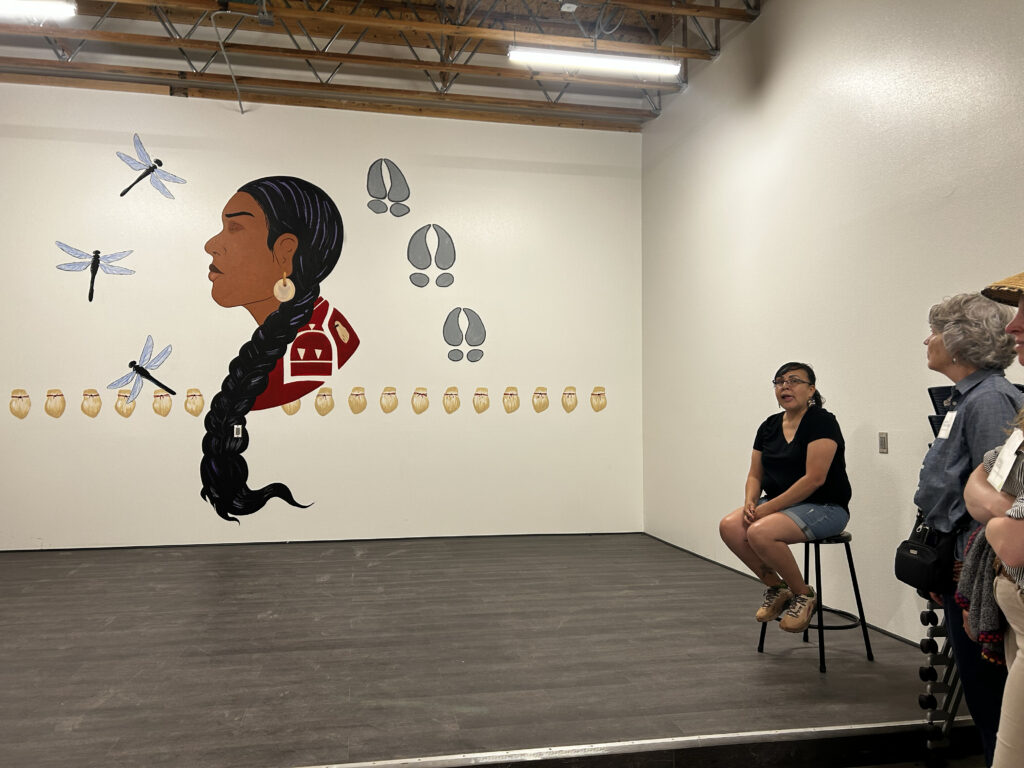
During the previous day’s meeting, the Arts Midwest Board approved the use of our annual David Fraher Fund for Innovation support on a contract with CAIRNS that will further research into Native Nations of the region. This plan is part of activating our Living Commitment to Native Nations, and the experience we had together in the Pine Ridge Reservation reiterated the importance of learning about and investing in Native communities and futures.
“In partnering with the Center for American Indian Research and Native Studies, we seek to better understand nuances and ground in the foundational awareness of the Native Nations in our region,” says Program Manager Kayla Schubert. “It is exciting to be a part of this phase of work, knowing that we will strengthen our active commitments and reciprocal relationship building to guide us in partnership development with Native Nations.”
The board concluded their time together by hearing from local Rapid City arts organizations, including Racing Magpie and Suzie Cappa Art Center, galleries that make their mission to engage with and highlight the work of American Indian artists and artists with disabilities, respectively.
This gathering held great significance in various ways: connecting face to face, reminding us of the work that still needs to be done, and acknowledging the special places and important work already taking place in Arts Midwest’s region. Not only can board members now say they have visited South Dakota, but they can also better grasp the unique experiences, rich history, and profound questions that this community deals with on a daily basis.
“The Arts Midwest Board of Directors appreciated the opportunity to meet with our partners at Arts South Dakota and the South Dakota Arts Council, and experience the vibrancy of the arts community in western South Dakota in person,” said Brian J. Tiemann, Arts Midwest’s Board Chair. “We hope to build upon our learning in South Dakota to further support the extraordinary work of artists and arts organizations in the region.”
Brian Tiemann, Arts Midwest Board Chair“We hope to build upon our learning in South Dakota to further support the extraordinary work of artists and arts organizations in the region.”
